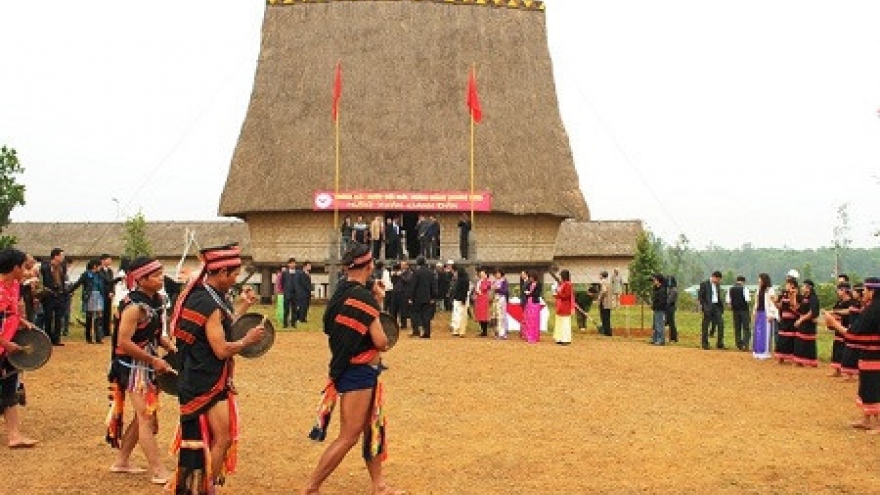Quang Ninh province preserves ethnic culture
VOV.VN - Tien Yen district, in the heart of northeastern Quang Ninh province, is close by Ha Long Bay, the Mong Cai border gate economic zone, and the Van Don economic zone. Tien Yen is home to several ethnic minority groups whose cultural identities have passed down the generations.
 |
| A peaceful corner of Tien Yen town |
Tien Yen town on a summer afternoon. The roads and ancient houses had just been washed by a rain shower.
The town contains two types of ancient houses: those built by the Chinese in the early 20th century and those with French architecture. The streets are laid out in a grid pattern, like a chessboard. There are no sidewalks.
The 2-story tube houses are covered with clay roof tiles. The 40-centimeter-thick walls are made of rocks or of bricks made with lime, red soil, and sand, while the ceilings are made of wood.
Each house has a small wooden staircase, a balcony, and a backyard, making the house cool in summer and warm in winter.
Tien Yen’s residents are Kinh - the majority people of Vietnam –as well as Chinese and people of the San Chi and Dao minority groups.
 |
| The old Tien Yen town is captured in Loan's photo. |
Photographer Can Dinh Loan, who was born in Tien Yen, said, “Tien Yen town sits next to a calm, romantic river. Ethnic groups gather and trade their products at an always-crowded market where there is no bargaining. The town is so peaceful and safe. We can leave our doors open any time we want. All the locals know each other. We always greet whoever we meet on the street. That makes Tien Yen town different from many other towns.”
 |
| Entertainment activities take place at the pedestrian street of Tien Yen town. |
Dilapidated houses in Tien Yen have been restored. There are 40 old houses scattering around the town. Local people pay attention to preserving the “soul” of their town, according to photographer Loan.
He said, “I take photos of every street corner, every house, and every person. Development is inevitable but cannot overwhelm all the traditional values. Tien Yen town has kept its culture intact and that makes me proud.”
 |
| Lanterns light up the pedestrian street of Tien Yen town. |
In the north of Tien Yen town are several communes, where half the population are ethnic minority people.
Local Tay and Dao people gather at singing clubs every week to practice songs in their mother tongues in praise of homeland, family, and love.
“Then” singing and the “tính” lute are typical of the Tay people, while the Dao people love call and response singing.
60 students of Tien Yen district meet every Saturday to sing and dance together. Chiu Thi Chi, a Dao minority girl, said “At first, I didn’t like singing in the Dao language. But as more people joined me, I became happier and more interested in singing.”
Club members hold singing competitions every Monday. They also learn traditional embroidery and demonstrate their ethnic costumes at their clubs.
Nguyen Thi Thanh Thuy, Head of the Culture Information division in Tien Yen town, said “We believe that these cultural activities will inspire in young people a sense of responsibility for preserving their traditional customs.”
 |
| Young ethnic women perform their folk songs. |
Several classes teaching ethnic languages and folk singing have opened. A number of traditional festival have been restored, including “Lồng Tồng” - a Tay festival to mark the imminent crops season, “Đại Phan” – a San Diu new-year festival to thank and ask the Gods for bumper crops and prosperity, and “Cấp sắc” – a mature rite for Dao men.
Truong Cong Ngan, Chairman of the Tien Yen People’s Committee, told VOV that “We attach importance to restoring disappearing traditions and promoting our cultural values. We will design a policy to involve people in the preservation of ancient houses and build hamlets typical of the Dao and Tay people to develop community tourism.”


